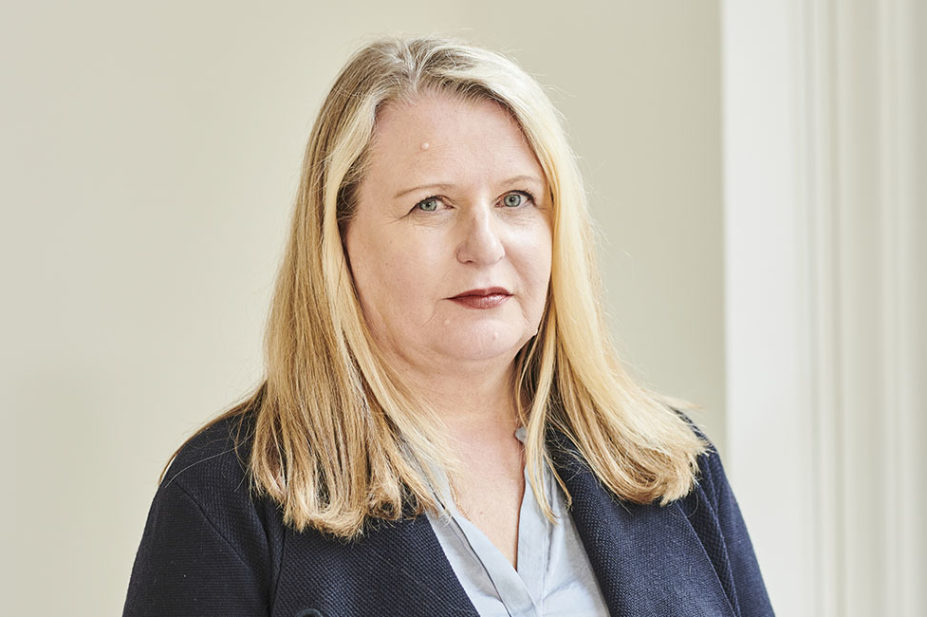
Paul Stuart
Pharmacies in England will be paid £1,000 per month for providing a Pharmacy First service, plus £15 per consultation, when the service begins on 31 January 2024, pharmacy negotiators have announced.
Through the service, which was first announced in May 2023 as part of NHS England’s ‘Delivery plan for recovering access to primary care’, pharmacists will provide advice and treatment for seven common conditions: sinusitis; sore throat; infected insect bites; impetigo; shingles; uncomplicated UTIs in women; and acute otitis media.
Treatments for the seven conditions will be supplied using one of 24 patient group directions (PGDs) that have been drawn up specifically for the service.
In an announcement on 16 November 2023, Community Pharmacy England (CPE) said the service’s details were agreed following “many months of complex negotiations between CPE, the Department of Health and Social Care (DHSC) and NHS England”.
According to the details of the agreement, CPE said pharmacies will have to provide a minimum number of consultations to claim the £1,000 monthly payment, beginning with one consultation per month in February 2023, rising to 30 per month by October 2024.
Pharmacies will also be able to claim a one-off payment of £2,000 if they sign up to the service before the end of January 2024.
In a letter sent to pharmacy contractors, the government and CPE said the additional funding made available for Pharmacy First is sufficient for up to 12 million consultations per year.
“From April 2024, an initial cap of 3,000 [Pharmacy First] consultations per month per contractor will be put in place,” it said, adding that from 1 October 2024, a new cap will be introduced based on actual delivery of Pharmacy First, with any unused activity rolling forward to subsequent quarters of that financial year.
“The mechanism to set these caps will be agreed jointly and will be reviewed once we have data from actual service delivery,” it said.
The letter added that the ‘Community pharmacist consultation service’ (CPCS) will form part of the Pharmacy First service. However, the cap only applies to the new “clinical pathways” element for treating the seven common conditions.
The letter added that, by 31 March 2025, all contractors delivering Pharmacy First will also have to deliver the ‘Community pharmacy contraception service’ and ‘Community pharmacy blood pressure check service’ to qualify for the monthly £1,000 payment (see Box).
Pharmacy First will be introduced as an advanced service, meaning it is optional for pharmacies to provide it.
However, Alastair Buxton, director of NHS services at CPE, said the “vast majority” of pharmacies in England currently offer the CPCS and he expected a similar number would provide Pharmacy First.
Janet Morrison, chief executive of CPE, described Pharmacy First as the biggest development for community pharmacy in England in the past decade.
“Today’s announcement is a huge positive for the sector. It will allow new money to flow into pharmacies, building on the immense contribution they played during the pandemic offering accessible advice and support in every community,” she said.
“It creates the building blocks for a clinical future, maximising the use of the skills and professional competence of pharmacists and their teams.”
The letter to contractors added that, from launch, pharmacists will “have access to more parts of the GP record” and will “use the new Pharmacy First consultation record to capture the consultation which will then send automatic structured updates to the GP record”.
Tase Oputu, chair of the Royal Pharmaceutical Society’s English Pharmacy Board, said: “We have long been calling for improved digital integration to improve the efficiency of pharmacy services for patients and healthcare professionals alike.
“We are pleased that today’s announcement also acknowledges the digital investment and records access that is required to make the Pharmacy First service a clinical success”.
Victoria Atkins, health and social care secretary, said: “For the public, these changes will mean more options for women when making a choice about their preferred contraception, reduce the risks of people suffering heart attacks and strokes and make it easier to access medicines for common conditions.
“And for healthcare professionals this will free up GP appointments and make better use of the skills and expertise within community pharmacies.”
Box: Existing service expansion
An expansion of the ‘Community pharmacy contraception service’ and a relaunch of the NHS community pharmacy blood pressure check service was also announced on 16 November 2023.
From 1 December 2023, community pharmacies will be able to initiate patients on contraception without them having to visit their GP first under an advanced service.
This follows the national roll-out of tier 1 of the contraception service in April 2023, which enabled pharmacies to continue the provision of oral contraception that had be initiated by other services.
Pharmacist-led initiation of contraception — known as tier 2 of the service — was described as a “landmark moment” when pilots launched in December 2022.
In a letter to contractors, the government and Community Pharmacy England said: “The fees for the ‘Blood pressure check service’ and the ‘Community pharmacy contraception service’ will not change. However, £75m per year additional funding has been made available to support the expansion of both these services.
“This means many more consultations under these services are affordable and will not put pressure on the wider contractual sum.”
2 comments
You must be logged in to post a comment.



I notice that 'pharmacies' can opt out, but not 'pharmacists'!
This is another role negotiated by the CPE but not approved by members of the profession.
No doubt, because of attractive remuneration, pharmacists will be pressurised by contractors to complete as many consultations as possible to earn maximum money (for the contractor). This has happened before in the case of Medicine Reviews.
In view of escalating workplace pressures, increased regulation, staff shortages, stress and illness, how is all this going to be acheived?
Another example of the CPE imposing impossible workloads on pharmacists without giving them any opportunity to veto them. Where is democracy in our profession? Why doesn't the RPS (who we are paying to serve our interests) stand up to this inexcusable liberty?
No wonder there is lack of recruitment and retention!
A quick analysis of the above shows that an average of one patient per 30 day month is required for the full quota ,but each February one or two patients will need to be dragged off the street in order to qualify, then the list of ailments contains "seasonal ailments eg. insect bites, sinusitis, spring and summer whereas Shingles and impetigo are rare.
Only Pharmacies in cities will have enough footfall to hope to fill the quota, so Pharmacies in smaller towns and villages have little hope.
So much for "Community Pharmacy" In my opinion the CPE needs to go back to the drawing board , and I agree with Mr Peter Robinson that the RPS need to act on this and if they need help I am sure Mr Robinson and I would be pleased to assist,